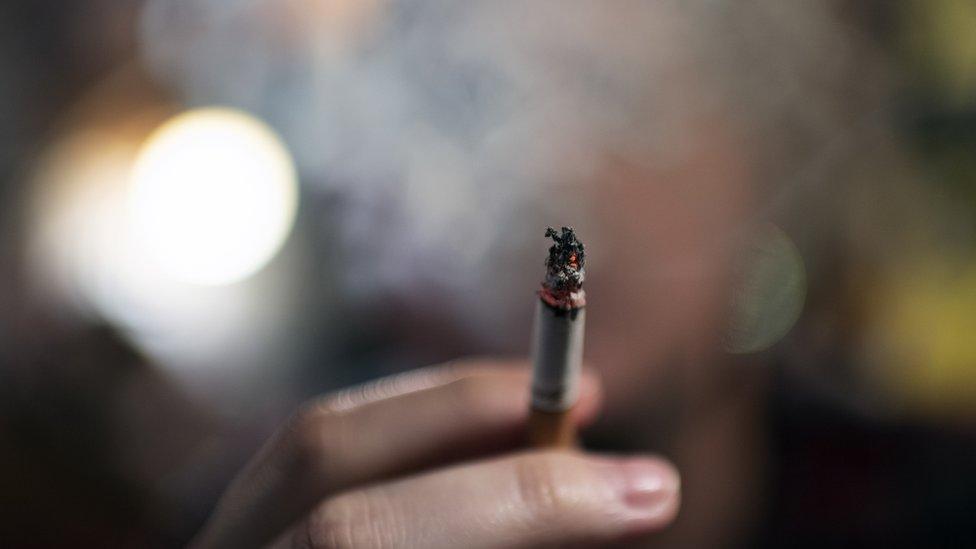Jersey and Guernsey sign up to WHO's tobacco control
- Published

The convention looks at the economic as well as the health impact of tobacco
A public health treaty set up to cut tobacco-related diseases and deaths has been extended to Jersey and Guernsey by the UK.
Both islands already comply with the minimum commitments - Protection from exposure to smoke, product packaging and bans on advertising.
More than 180 countries or states have signed up to the World Health Organisation (WHO) convention.
The WHO says more than eight million people die from tobacco use annually.
"The scale of this human and economic tragedy is shocking, but it's also preventable," it said.

Framework Convention on Tobacco Control
Came into force in 2005 with the aims of:
Banning tobacco advertising, sponsorship and promotion
Ensuring at least 30% of packaging must be covered by health warnings
Introduce measures to protect people from second-hand tobacco smoke in public places
Draw up strategies to combat smuggling
Adopt tax policies that discourage smoking

The islands will have to participate in regular reporting to show compliance, with evidence-based approaches to reduce tobacco-related harm to remain signed up.
"Tobacco can have devastating health consequences but, importantly, also impacts on a country's economy through increased health-care costs and decreased productivity," said Deputy Heidi Soulsby, President of Guernsey's Committee for Health and Social Care.
"This will protect present and future generations from the negative health, social, environmental and economic consequences of tobacco use."
Deputy Richard Renouf, Minster for Health and Social Services in Jersey, said the "highly regarded" treaty showed the importance of work across government departments and between different governments to improve health.
"Health really is everyone's business and I look forward to strengthening tobacco control with the support of this treaty," he said.